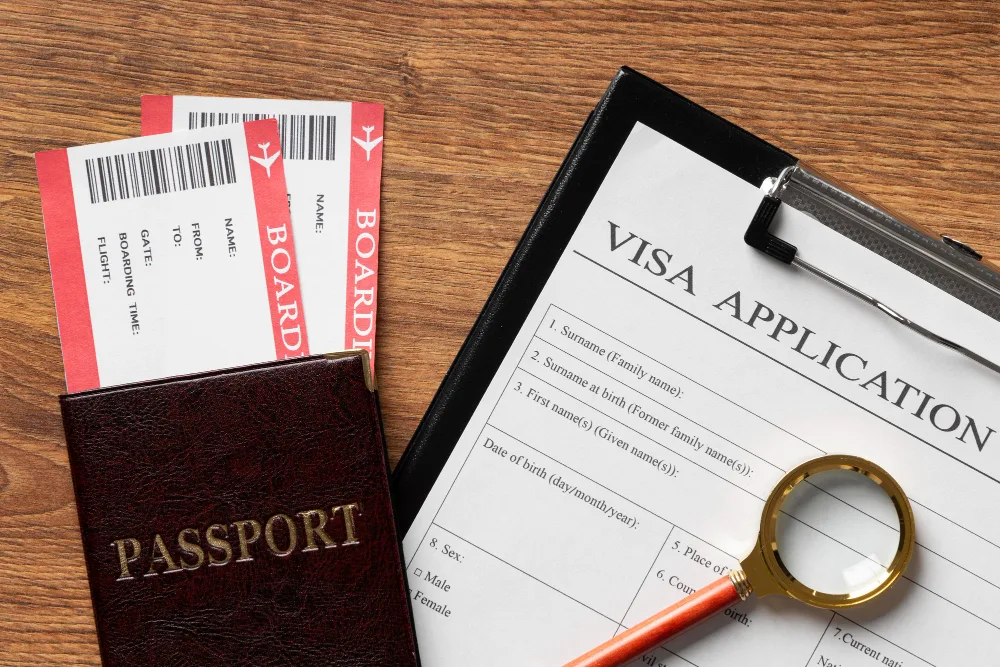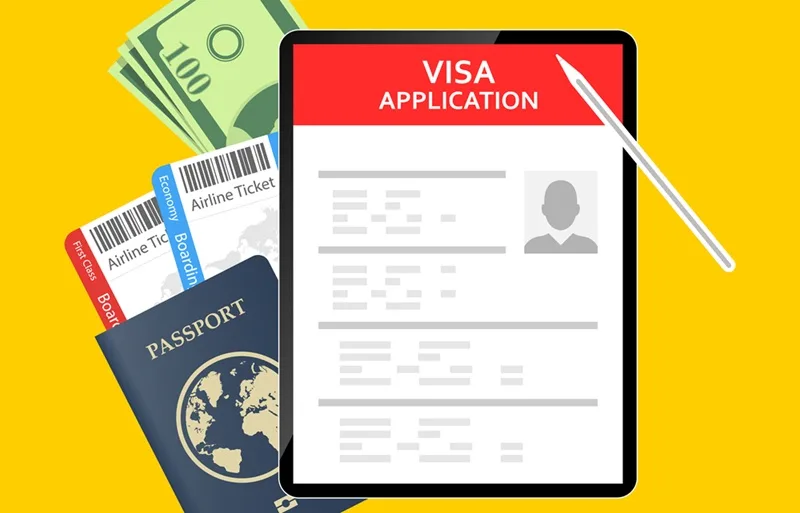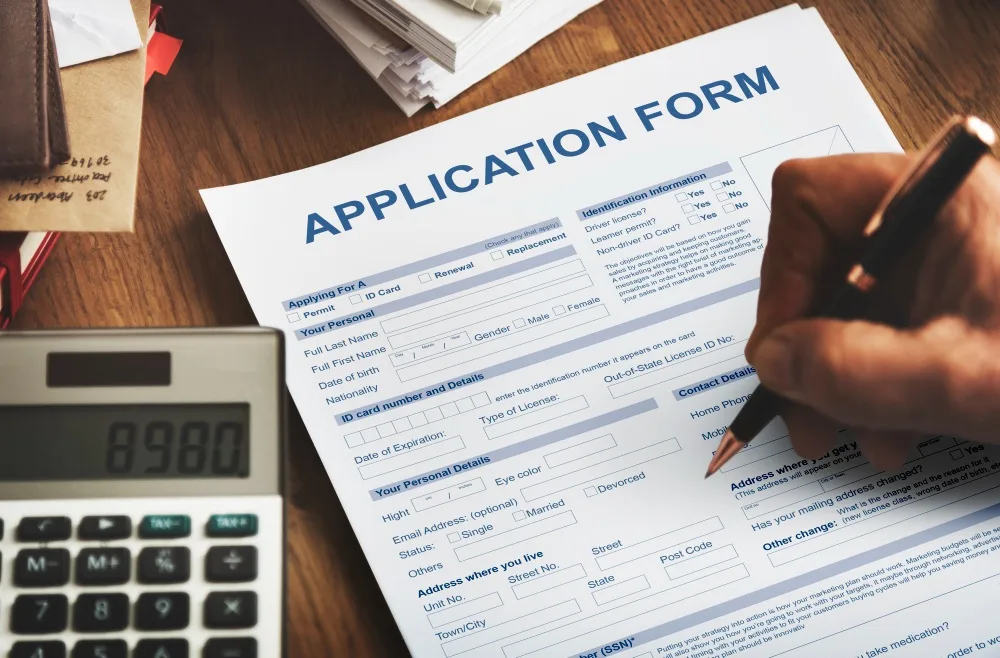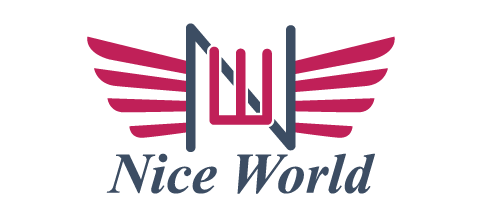How to Get a Job in Europe As A Bangladeshi
Let’s be honest; it’s every Bangladeshi’s dream to move to Europe.
But, it’s just a dream for most of them. However, it might be different for you, if…
You want a real job in Europe. You want a legal path. You want clear steps.
There isn’t one “Europe visa.” Each country has its own route. Your best path depends on your profile. It depends on your job type, education, language, and timelines. It also depends on whether you already have an offer.
Options To Immigrate To Europe From Bangladesh

If you are serious about it, my suggestion is simple. Pick a lane first. Then match countries and permits to that lane. Then execute fast with clean documents.
- If you have a confirmed offer, go employer-sponsored.
- If you are highly skilled, check the EU Blue Card.
- If you have skills but no offer, consider job-seeker visas.
- If you want a study path, target countries with long post-study work.
- If you are in a multinational, explore an intra-company transfer.
- If you plan to build a business, consider founder visas.
- Family routes also exist.
Use official sources. Avoid shortcuts. Never pay for “job letters.”
You can also use Nice World as your bridge. We are a Bangladesh-led platform that connects you to verified employers. We guide you from job selection to visa to travel; till you land in your dream country.
Quick Path Picker
| Your profile | Best route to target | Example countries | Typical timeline* |
| Degree + strong experience; skilled role | EU Blue Card or national skilled worker permit | Germany, Netherlands, Ireland, Austria, France | 1–4 months after job offer |
| Skilled trades / mid-skill roles | Single/combined work + residence permit | Poland, Czechia, Lithuania, Romania, Hungary, Malta | 2–6 months depending on quotas |
| Employable but no offer yet | Job-seeker / opportunity visas | Germany (Opportunity Card), Portugal, Austria, Sweden | 2–8 weeks to entry; up to 6–12 months to secure job |
| Students or recent grads | Study-to-work + post-study stay | Germany, Ireland, Netherlands, Denmark | 1–3 months for student visa; 12–24 months stay-back |
| Seasonal work (agri/tourism) | Seasonal worker programs | Italy, Spain, Portugal | 4–12 weeks; stays up to 3–9 months |
| In a multinational company | Intra-Company Transfer (ICT) | Germany, Netherlands, France, Italy | 1–3 months |
| Entrepreneur / founder | Startup or entrepreneur visas | Portugal (D2), Netherlands (Startup), France (Talent) | 2–6 months |
| Family of resident | Family reunification with work rights | Varies by host country | 2–6 months |
*Timelines are typical ranges, not guarantees. They vary by embassy load, quotas, and case quality.
Legal Pathways Move To Europe For Bangladeshis

As a Bangladeshi, you have several clean, legal routes. Pick the one that matches your profile. Then execute.
Employer-Sponsored Work Permits (Single/Combined Permits)
This is the classic route. You first secure a job offer. Then the employer (and/or you) applies for a work + residence permit.
Who it fits: mid-skill to skilled roles.
Core requirements: signed contract, employer sponsorship, proof of skills, clean record, insurance. Some countries run a labor-market test.
Typical timeline: 1–6 months after offer, depending on quotas and embassy load.
Pros:
- straight into a job;
- clear residence path;
- spouse often can join later.
Watch-outs: You have to:
- avoid fake offers;
- never pay for a job;
- mind quota windows.
Possible Countries: Poland (Type A → National D → TRC), Czechia (Employee Card), Lithuania/Latvia/Romania/Malta (Single Permit).
Here To Find: apply to verified roles and check sponsor status. Nice World can match you to vetted employers and guide the filing.
EU Blue Card (Highly Skilled)

This is for degree-level talent with a qualifying salary. You need a proper contract aligned to the country’s threshold.
Who it fits: IT, engineering, healthcare, finance, technical managers.
Core requirements:
- University degree (or equivalent recognition)
- Contract
- Salary above national minimum for Blue Card.
Typical timeline: often 1–4 months after offer.
Pros:
- strong mobility inside the EU;
- good family benefits;
- faster long-term residence in some countries.
Watch-outs: You have to:
- Check thresholds (It varies by country and year);
- get salary confirmation early.
Target roles that clearly meet the salary and degree rules. Nice World can pre-screen offers for Blue Card fit.
National Shortage-Occupation / Skilled Schemes

These schemes exist for jobs a country cannot fill locally. If you are skilled in a role in a shortage list, the permit is usually simpler and faster. Lists are public and updated.
Who it fits: trades and professions on shortage lists. You can find the list in the official websites of EU Labour unities.
Core requirements: relevant qualification or experience; contract that meets salary floors.
Typical timeline: similar to employer-sponsored, sometimes faster.
Pros:
- reduced red tape;
- predictable approvals when you match the list.
Watch-outs: You have to:
- lists change; so have to check the updated list;
- Your profession must match exactly to their requirement.
Examples:
- Austria Red-White-Red Card,
- Ireland Critical Skills,
- Germany Skilled Worker track.
Job-Seeker / Opportunity Visas
You enter first to search locally. You switch to a work permit after you sign a contract.
Who it fits: skilled candidates without an offer yet.
Core requirements: points or degree (varies), proof of funds, housing plan, insurance.
Typical timeline: 2–8 weeks to get the visa; You can stay up to 6–12 months on the ground to find a job.
Pros:
- Find your own job
- you can interview in person
- some permits allow part-time trial work
Watch-outs:
- strict switch-over deadlines
- no full-time work until you convert
Examples:
- Germany Opportunity Card
- Portugal Job Seeker
- Austria Job-Seeker (very highly qualified)
- Sweden Look-for-Work (for advanced degrees).
Study-to-Work (University or Vocational Training)

With these visas you go to a country to study first, then use post-study work rights to secure a job.
Who it fits: students and recent grads; people open to upskilling.
Core requirements: university offer or vocational contract (e.g., Ausbildung), funds, insurance.
Typical timeline: 1–3 months for the student visa; post-study stay is commonly 12–24 months depending on the country.
Pros:
- Get local experience
- stronger employer interest
- time to convert to skilled permits or Blue Card
Watch-outs: You have to:
- Check tuition and living costs;
- Check attendance and progress rules.
Seasonal Worker Programs
A Seasonal Worker Program lets a non-EU worker enter a European country temporarily to do work that depends on the season. Industries like agriculture, food processing, hospitality, or tourism require seasonal workers regularly.
The stay is short and capped, between 3 and 9 months.
Who it fits: candidates seeking temporary work and income.
Core requirements: seasonal contract, accommodation plan, insurance.
Typical timeline: 4–12 weeks; stays usually up to 3–9 months.
Pros:
- legal entry;
- quick decisions;
- repeatable in some countries.
Watch-outs: limited rights; not a direct route to permanent residence.
Examples: Italy (Decreto Flussi quotas), Spain and Portugal seasonal tracks.
Intra-Corporate Transfer (ICT)
Your current employer posts you to a related EU branch as a manager, specialist, or trainee.
Who it fits: staff of multinationals operating in Europe.
Core requirements: group company link, role fit (manager/specialist/trainee), salary that matches host rules.
Typical timeline: 1–3 months.
Pros:
- clear corporate pathway;
- EU mobility between group entities in several countries
Watch-outs:
- you must remain employed by the sending entity
- role changes are limited
Entrepreneur / Startup Visas
You create or run a business in the host country. You submit a business plan, proof of funds, and evidence that the venture is real. Some countries require an endorsement or an incubator contract. Others ask you to show economic interest for the region. Names differ, but the logic is the same.
Who it fits: founders, freelancers evolving into a company, and startup hires under “talent” tracks
Core requirements: business plan, proof of funds, market logic; sometimes incubator/endorsement.
Typical timeline: 2–6 months.
Pros:
- you control your earnings
- you may hire locally
- good long-term options if the business grows
Watch-outs: not for taking a regular payroll job elsewhere; clear compliance is vital
Family Reunification with Work Rights
You join a spouse or partner who is lawfully resident (or an EU citizen, subject to rules).
Who it fits: married partners and eligible dependents
Core requirements: relationship proof, housing, income or sponsor criteria; language basics in some countries.
Typical timeline: 2–6 months.
Pros: many countries grant immediate work rights to spouses.
Watch-outs: strict document checks; fraudulent marriages are criminal.
How To Find A European Job As A Bangladeshi

You can use these instructions as a playbook.
I would suggest – move step by step, keep every document clean, beware of shortcuts; most of the time these lead to scams.
Anyways, here what you should do:
1) Pick your lane
Choose the route that fits you: employer-sponsored, EU Blue Card, shortage list, job-seeker, study-to-work, seasonal, ICT, or founder.
Pick one lane first. Do not chase five at once.
2) Shortlist countries (2-3 Max)
Match your job title to countries where it works now. Always consider language needs, salary floors, and processing times.
Must check if your role appears on a shortage list. If there, the process time can be cut down significantly.
3) Build a market-fit CV and letter
Use a one-page EU-style CV with clear metrics. Align your job title to the host title or code.
Write a short motivation letter per country.
Deliverable: 1-page CV + 200–250-word letter for each country.
4) Gather core documents early
Do this before you apply. It will save weeks.
- Passport valid 18–24 months.
- Degree, transcripts, and certified translations (where required).
- Experience letters on company letterhead; payslips if available.
- Police Clearance Certificate (recent).
- Health insurance per visa rules.
- Proof of funds and bank statements (for job-seeker/study/entrepreneur).
- Biometric photos to Schengen spec.
- For regulated roles: credential recognition and language proof.
Compile them in a single, labeled PDF set for each country.
5) Validate the employer and the offer
Now, apply, apply, and apply.
If you are selected:
check the company’s registration, address, and website. Read the contract line by line.
Confirm title, salary, hours, location, and start date. Salary must meet any legal threshold.
Nice World can help you with the process.
6) File the permit or visa
This completely depends on the country you are applying for. Check the official checklist of the country you are selected. Sequence matters.
- In some countries the employer first secures work authorisation.
- You book VFS/embassy, submit forms, pay fees, and give biometrics.
- Respond fast to “additional documents” requests.
7) Pre-departure compliance (Bangladesh side)
Complete any emigration compliance that applies to your route/sector. Keep copies of your contract and approvals.
Plan the first 30 days: temporary housing, airport pickup, and work start.
8) Travel and land
Carry printed copies of approvals, contract, and insurance. Keep your employer contact handy.
Arrive with some cash ( Mostly 2 months of cost) and a card that works in the EU.
9) After arrival (first 2 weeks)
Do the local admin quickly.
- Register your address within the legal window.
- Apply for your residence card or biometric permit.
- Open a bank account and get your tax/social numbers.
- Enroll in the correct health insurance.
Country Snapshots: Immigration Opportunities

You should know what opportunities are available for each country. Here’re the currently available offers from different countries. It is applicable to Bangladeshis as any other nationalities.
Germany: Skilled, Blue Card, Opportunity Card
Best if you have a degree or strong IT experience.
Blue Card salary in 2025: €48,300 standard; €43,500 for bottleneck/new entrants/IT (6-month minimum contract).
The Opportunity Card lets you enter for up to 12 months to job-hunt on a points system. Health insurance for D visas must meet statutory-level cover (travel insurance alone is not enough).
Poland: Employer-sponsored (Type A) + National D
Employer gets a Type A work permit from the voivode. You apply for the D visa, then the residence card after arrival. Poland also runs a separate seasonal permit (up to 9 months in a year).
Czechia: Employee Card
Single combined work+residence permit for non-EU workers. Apply abroad or (in limited cases) inside Czechia. Expect originals/verified copies and Czech translations.
Austria: Red-White-Red Card
Points-based. Annual shortage lists published for 2025 (national and regional). After meeting stay criteria, RWR Card Plus gives broader labour-market access.
Netherlands: Orientation Year (Zoekjaar)
1-year post-study job-search permit for recent grads/PhDs/researchers. No separate work permit needed during the year. Updated July 2025.
Ireland: Critical Skills + Graduate Stay-Back (Stamp 1G)
Critical Skills Employment Permit targets shortage roles with a strong residence path. Irish-educated non-EEA grads (Level 8/9) usually get a 12 months stay-back to find work.
Portugal: Job-Seeker Visa
Lets you enter 120 days, extendable 60 days, to look for work. Single-entry. You switch to a residence permit after a contract.
Denmark: Positive Lists
If your job title is on the Positive List (Higher Education or Skilled Work), you can get a permit. Lists update twice a year; new lists took effect 1 July 2025.
Sweden: “Look for work or start a business”
Residence permit up to 9 months for highly qualified people to job-hunt or test a business. Clear rules on switching to self-employed or work permits after.
Italy: Employer-first + Quotas
For many routes the employer gets the nulla osta first via the one-stop desk. Seasonal and other entries are tied to Decreto Flussi quotas.
Tip: Sense hiring demand with EURES before you choose. It is the EU’s official job portal.
Documents & Eligibility: What You’ll Usually Need

You win this stage by being early and exact. Keep your soft copies (PDFs) clean. Follow the official checklist for your country and category.
Here I included documents that are usually required:
Identity & forms
- Passport valid long enough for your route (for Schengen C, at least 3 months beyond exit + 2 blank pages). Long-stay D rules vary by country
- Application form + biometric photo to ICAO spec.
Job & permit
- Signed contract/offer with title, salary, start date, location, hours.
- Employer authorization, if required (e.g., Italy nulla osta; Poland Type A)
- For Blue Card in Germany: degree-matched job, 6-month minimum contract, and salary at or above the 2025 threshold (see above).
Qualifications & recognition
- Degree/transcripts and experience letters.
- If the role is regulated (nurse, engineer, teacher, etc.), check the EU Regulated Professions database and the ENIC-NARIC network for recognition/equivalence steps.
Insurance
Don’t guess. Have these minimums and no one will be able to obstruct you.
- Schengen C applications require travel medical insurance that covers emergency care, hospitalization, and repatriation. EU guidance lists medical insurance as a required document; consulates typically require €30,000 minimum coverage
- National D (long-stay) for Germany: travel insurance alone is not sufficient; cover must be commensurate with statutory health insurance from day one (embassy guidance).
Funds, accommodation, police
- Proof of funds when your route requires it (e.g., job-seeker/study).
- Accommodation proof per consulate list (booking, lease, or employer letter).
- Police Clearance Certificate within the validity window set by the post.
- Country-specific examples: Czech Employee Card asks for accommodation proof and qualification documents; Poland D-visa has distinct document lists.
Translations, legalisation, Apostille (Bangladesh)
- Many embassies require sworn translations.
- Bangladesh joined the 1961 Apostille Convention on 30 March 2025. That replaces full consular legalisation only where the destination country recognises Bangladesh’s accession.
- Several states (incl. Germany, Austria, Netherlands, Denmark, Czechia, France, Greece, Belgium, Finland, Estonia) filed objections, so expect classic legalisation for those. Always check the destination embassy’s rule.
How Find Real Jobs In Europe As A Bangladeshi
Where to look first
First you should check the official portals. Start with EURES and each country’s public job site.
Then, if you have some specific countries in mind, check company career pages for direct hiring.
You can use LinkedIn with filters for location, visa sponsorship, and language.
Lastly, you can use mediatory job portals, like Nice World. I strongly recommend this, because Nice World not only helps you to find jobs, but also helps in the latter process.

Read a Job Ad Like a Pro
When you see a job ad, start by carefully matching your own title with the exact title listed. Pay attention to the required skills, the salary range, the type of contract, and the work location. Many ads also include notes about whether the employer sponsors work permits: always check this before applying.
As a rule of thumb, only move forward if you meet at least 80% of the listed requirements.
Quick Employer Vet
Before applying, take a few minutes to verify the employer. Search the company in the national business register and review their official website to confirm a real address and phone number.
Make sure the recruiter’s or HR contact email uses the company’s domain, not a free provider.
Look up existing employees on LinkedIn, and if in doubt, call the company’s reception to confirm the vacancy is real.
Contract Checks That Matter
Once you have an offer, go through the contract with care.
The job title should match the ad exactly, and the salary must meet the country’s legal minimum if one applies. Hours of work, location, and start date should be stated clearly.
Pay attention to clauses on probation, overtime, and notice periods. If relocation or housing is part of the package, make sure it states who pays for these in the first month.
Hard Red Flags
Some signs immediately show a job is not legitimate. These are:
- “Pay for job letter,” “pay for sponsorship,” or “VIP VFS slot.”
- No interview but instant offer.
- Gmail/Yahoo address for HR at a “large company.”
- Tells you to travel on a tourist visa to start work.
- Asks you to courier your original passport to a private address.
If You Use a Recruiter
Only work with licensed recruiters, and always ask for their license number. Sign a written service agreement that clearly lists the fees you are paying. Keep every receipt, and never hand over your passport except directly at an embassy or official VFS office.
Do you know, Nice World is a licensed company? Moreover, we eliminate the hefty price that recruitment agencies ask from you. Contact us to know how our processes work.
One Email You Can Send HR
Here’s a simple message you can adapt:
“Thank you for the offer. Could you confirm that your company sponsors non-EU work permits for this role, and share the permit name used for similar hires? Please confirm the gross monthly salary, work location, and start date. I will align my visa file accordingly.”
Moving to Europe: Costs, Timelines & Budget
Start your financial planning well before you apply. Always give yourself a buffer, and make a habit of writing the numbers down. I’ll give you the typical ranges and a simple way to total them, so you can avoid surprises later.
When planning, think about the common spending buckets.
Where you’ll typically you’ll spend on:
- First come the essential documents: your passport, photos, police clearance, and any required translations.
- Some countries also ask for legalisation or apostille stamps, so check whether your destination requires them.
- Next are the visa and service fees. These include embassy charges as well as any handling by providers like VFS or TLS.
- Don’t forget insurance: Schengen countries, for example, require travel insurance for C visas, while long-stay D visas often demand proof of country-appropriate health coverage.
- You’ll also need to account for flights and your first days of arrival: tickets, airport transfers, a local SIM card, and basic groceries.
- Housing is a major upfront cost: most landlords ask for one month’s rent plus a deposit.
- Depending on the role, you may also face recognition or testing expenses, such as credential checks or language exams.
- On top of everything, set aside a contingency fund equal to two to three times your monthly living costs to stay safe against the unexpected.
- For planning purposes, it’s best to calculate everything in euros. When it’s time to pay, simply convert to taka at the day’s exchange rate to keep your budget accurate.
Below is an estimated budget for different routes. The costs are what we usually suggest our clients to keep in hand.
| Route | One-off file costs* | Monthly living | Suggested buffer | First-month housing cash | Total budget |
| Employer-sponsored skilled | €200–€700 | €800–€1,400 (low-mid cost cities) | 2× monthly | 1–2× monthly | €2,800–€4,900 |
| Job-Seeker / Opportunity | €250–€800 | €1,000–€1,800 (depends on country) | 3× monthly | 1–2× monthly | €5,250–€9,800 |
| Study-to-Work (excl. tuition) | €300–€900 | €900–€1,600 | 3× monthly | 1–2× monthly | €5,000–€9,300 + tuition |
| Seasonal | €150–€500 | Often employer housing or shared | 1× monthly | 0–1× monthly | €700–€1,800 |
| ICT (intra-company) | €100–€400 | Employer often assists | 1–2× monthly | 1× monthly | €2,000–€3,500 |
| Entrepreneur / Startup | €400–€1,500 | €1,000–€2,000 | 3× monthly + runway | 1–2× monthly | €6,400–€12,500 + business funds |
*One-off file costs = visa/service fees, insurance setup, translations, legalisation/Apostille, misc. Ranges vary by country and city.
Timeline ladders For Immigration
This is how the timeline goes if you want to move to Europe from Bangladesh for different options.
Employer-sponsored (you have an offer)
- Week 0–1: Sign the offer and your employer files any required pre-authorisation.
- Week 1–5: Authorisation + your visa appointment scheduling.
- Week 5–10: Biometrics appointment + the decision.
- Week 10–12: Travel → address registration → residence card application.
Job-Seeker / Opportunity Card
- Week 0–1: Confirm your eligibility points + prepare proof of funds.
- Week 1–4: Attend your appointment + complete biometrics.
- Week 4–8: Decision → travel (If got a Yes).
- Month 2–6: Interview locally; switch to work permit when hired.
Study-to-Work
- Week 0–2: Securing your university offer + arrange funds and insurance.
- Week 2–6: Visa appointment → waiting for decision.
- (If excepted) After arrival: study; use internships; and eventually convert to post-study work on graduation.
Seasonal
Before filing, you must confirm the quota window, your contract, and housing arrangements.
- Week 0–4: Employer petition (if applicable) + your visa application.
- Week 4–8: Decision → travel → start seasonal work.
Intra-Company Transfer (ICT)
- Week 0–3: Prepare HR dossier + intra-group proof.
- Week 3–8: Visa filing + waiting for decision.
- Week 8–10: Travel → collect residence permit/ID.
Entrepreneur / Startup
- Week 0–3: Incubator/endorsement (if needed), plan, funds evidence.
- Week 3–8: Visa filing → waiting for decision.
- Month 2–3: Company setup, tax, bank, health insurance after landing.
Note: These are planning windows. Holidays, quotas, and embassy load can shift them.
Following this guide, you should have a clear understanding of what it takes to secure a job in Europe and the steps that follow. It’s normal to feel overwhelmed by the number of tasks involved. That’s where Nice World can help.
We connect employers with job seekers, and our support goes beyond just matching you with opportunities. From CV writing and interview preparation to visa assistance and travel coordination, we make the process smoother and less stressful.
Depending on the plan you choose, we can also guide you through settlement support, basic coordination, and other essential needs after arrival. If you’re planning to go abroad, partnering with Nice World ensures you make better, safer, and more informed decisions.


